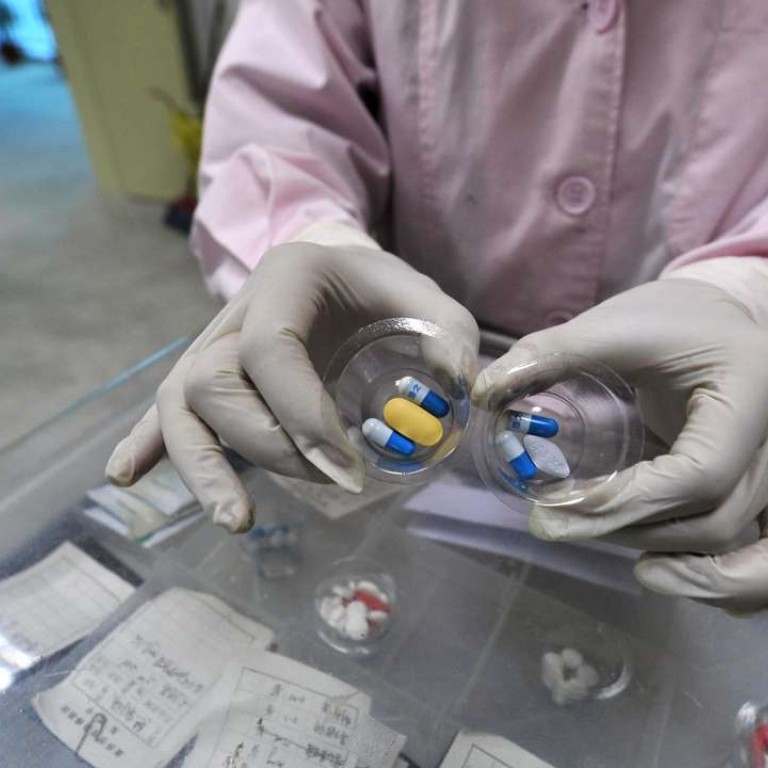
New antibody therapy keeps HIV at bay without daily drug regimen, study says
The hunt for an HIV treatment that roots the virus out of its hiding places and kills it just got more interesting.
A human antibody that already has shown promise in protecting people against HIV infection has demonstrated the ability to suppress the resurgence of the infection for as long as 19 weeks in infected people who stopped taking their anti-retroviral medications.
In a letter published in the journal Nature, scientists report that in 13 HIV-infected people who discontinued their cocktail of retroviral drugs, infusions of a neutralising antibody called 3BNC117 staved off the expected rebound of the human immunodeficiency virus for more than a month.
Typically, when an HIV-infected patient stops taking his or her anti-retroviral medications, the virus bounces back to dangerous levels within 18 days. But in findings reported Wednesday, scientists wrote that all of the 13 participants saw their viral loads suppressed to very low levels for at least five weeks after their last treatment — delaying resurgence of the virus twice as long as normal.
Six of the 13 participants saw their viral loads suppressed to very low levels for at least nine weeks after their last treatment — three times the normal span.
The new finding emerged from a clinical trial designed to assess the safety of an experimental therapy that aims to harness the immune system to battle HIV infection. Trial participants who discontinued their anti-retroviral medications were monitored closely and returned to their drug regimen as soon as the rebound of the virus was detected.
None of the patients experienced acute retroviral syndrome — a powerful resurgence of the virus that makes it harder to regain control of HIV following a medication lapse. And genetic sequencing of eight participants’ rebounding viruses suggested that the antibody infusions had not, in most cases, flushed different or more-resistant strains of HIV from their hiding places.
In fact, the authors of the new report said, the antibody therapy “appears to restrict the outgrowth of viral genotypes from the latent reservoir.”
The experimental therapy is part of a broad effort to find new ways to control HIV infection, and possibly to drive it out altogether.
Anti-retroviral drugs are inexpensive and highly effective, in combinations, at suppressing HIV’s replication. But some of the virus always eludes those drugs, hiding in cellular “reservoirs” in an infected person. Given the opportunity afforded by a lapse in anti-retroviral medication, those cells will swing into a robust production of the virus they have harboured. And with that, a patient’s infection will re-emerge, sometimes stronger and more resistant to anti-retroviral drugs than before it was brought under control.
Dr Anthony Fauci, director of the National Institute of Allergy and Infectious and Diseases, called the effort reported in Nature “an excellent study” in “a very hot field.”
Fauci said the motivating idea of such efforts is to explore whether HIV-infected patients could be given a more convenient alternative to an intensive regimen of pills. After their infection has been suppressed with anti-retroviral drugs, patients might receive intermittent infusions of one or more antibodies that would suppress the resurgence and replication of the virus. A cocktail of such antibodies not only might be more convenient and effective than anti-retroviral drugs at tamping down HIV infection, it might offer a safer treatment for patients who develop dangerous side effects to anti-retrovirals.
Could such a therapy be a cure for HIV?
“That’s a very high bar,” said study co-author Dr Michel Nussenzweig of the Rockefeller University’s Howard Hughes Medical Institute. Driving HIV out entirely would take not only cocktails that include many antibodies, he noted; it would require some further engineering of antibodies to prime and direct the immune system’s destruction of HIV reservoirs.
A more attainable goal for the near-term, Nussenzweig said, is using antibody therapy like this to protect against HIV infection in people who are still uninfected. By testing primates, Nussenzweig’s group already has found that injections of the antibody 3BNC117 conferred protection against HIV infection for 23 weeks.
“In my dreams, it’s like a flu shot. You give it once a year,” said Nussenzweig, who conducted this work with funding from the Bill and Melinda Gates Foundation.

